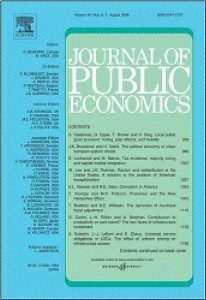
\van den Berg\, V.A.C. and Verhoef, E. (2011). Winning or losing from dynamic bottleneck congestion pricing? The distributional effects of road pricing with heterogeneity in values of time and schedule delay Journal of Public Economics, 95(7-8):983--992.
-
Affiliated authors
-
Publication year2011
-
JournalJournal of Public Economics
This paper analyses the efficiency and distributional impacts of congestion pricing in Vickrey's (1969) dynamic bottleneck model of congestion, allowing for continuous distributions of values of time and schedule delay. We find that congestion pricing can leave a majority of travellers better off even without returning the toll revenues to them. We also find that the consumer surplus losses or gains from tolling are not strictly monotonic in the value of time, because they also depend on the value of schedule delays. The greatest losses are not incurred by drivers with the lowest value of time, but by users with an intermediate value of schedule delays and the lowest value of time for that value of schedule delays. For second-best pricing with an untolled alternative, the pattern of distributional effects is quite similar to that for first-best pricing. In contrast with results from prior static models, users who are indifferent between the two alternative routes are not the ones who gain least from this type of second-best pricing. Our results suggest that, in assessing the distributional impacts of road congestion pricing, it is important to take into account both the distribution of the value of time and of the value of schedule delays, as well as the dynamics of departure time choice. {\textcopyright} 2010 Elsevier B.V.